Matthew 8:23-27
Pastor James Preus
Trinity Lutheran Church
January 30, 2022
In 1 Kings 18, the Prophet Elijah challenges the prophets of Baal to determine who the true God is, the LORD or Baal. Each party set up an altar and prepared a bull to be sacrificed, but neither the false prophets or Elijah set their offering on fire. Instead, they prayed to their god for him to send fire down from heaven. The prophets of Baal went first. After hours of crying out to Baal and dancing around like pagans, Elijah began to mock them saying, “Cry aloud, for he is a god. Either he is musing, or he is relieving himself, or he is on a journey, or perhaps he is asleep and must be awakened.” (2 Kings 18:27) Elijah mocked the prophets of Baal in this way, because their god was no true God. Baal did not make man in his own image, but rather a bunch of men made Baal after their own imaginations, with needs and wants just like their own. But the LORD, the true God, whom Elijah served, who did send fire down from heaven to consume Elijah’s sacrifice, was not like Baal that he would muse, or relieve himself, or go off on a journey, or sleep. The LORD is not like a man that he does these things. He transcends mankind. He is all-knowing, omnipresent, and eternal. He has no body that he should relieve himself or go to sleep. So, Elijah rightly mocks these prophets of Baal for worshiping a false god, who cannot answer prayers.
Yet, the Jesus, whom we confess to be God of God, Light of Light, very God of very God, begotten, not made, being of one substance with the Father by whom all things were made, this Jesus does muse. He frequently goes off by himself to meditate in a desolate place and pray. His ministry is described as peripatetic, meaning, that he wanders around, going on journeys. He is recorded to have eaten and drunk like any other man. And here, in our Gospel lesson, we find this Jesus asleep and his disciples must awaken him. Everything Elijah says to mock the false god Baal, we find our Jesus doing here on earth! What does this mean?
Well, this means that our Jesus is truly a man. He doesn’t just appear to be a man, as some have supposed. He is a real, flesh and blood human, just like us, yet, without sin (Hebrews 4:15). Our Lord got hungry. Our Lord needed time by himself to think and pray. And yes, our Lord got tired and slept. Jesus worked hard, traveling, teaching, and preaching, and healing every type of disease. This took a toll on Christ. It tired him out. And so, as anyone who has ever put in more than a full day’s work can sympathize with, he fell asleep. So worn out was he, that the tumultuous waves served only to rock him as he slumbered.
Yet, does this mean that Jesus is not God? By no means. As Jesus is truly a man, he remains God. Although he sleeps here on earth, he remains in full control of the universe on his throne in heaven. Just as Christ held the universe in his hand while he was yet an unborn baby in his mother’s womb, so Jesus continues to be God as he lies tired and worn in the stern of the boat. Jesus’ human nature does not diminish his divine nature. Jesus’ humiliation does not inhibit his ability to rule as God. This is the mystery of the Personal Union of Christ. He is one person, yet man and God at the same time. He sleeps through the storm even while controlling the weather on the entire planet.
This means that Jesus’ nap does not make him unaware of his disciples’ problem. He does not sleep ignorant of the danger of the wind and the waves. Nevertheless, he sleeps. Yet, why does he sleep? Why does he seem so unconcerned for their safety? Why does he permit his friends to tremble in fear that they might drown, so that St. Mark records them crying out, “Teacher, do you not care that we are perishing?”? This behavior of our God was not introduced when he became man. God is the same yesterday, today, and forever. Even when the people of God knew that God had no body and no need to sleep, the Psalmist still cried out to the Lord in Psalm 44, “Awake! Why are you sleeping, O Lord? Rouse yourself! Do not reject us forever! Why do you hide your face? Why do you forget our affliction and oppression? For our soul is bowed down to the dust; our belly clings to the ground. Rise up; come to our help! Redeem us for the sake of your steadfast love!”
Why does Jesus put his disciples through this trial? The answer is given by Jesus, “Why are you afraid, O you of little faith?” Jesus puts them through this trial to strengthen their weak faith. This is always why God puts us through trials, so that we may come out stronger in the end. This might seem cruel when you go through such a fright, but you’re always better off when you endure. There was a great storm, and afterward Jesus provided a great calm to make up for it. The sailors on Jonah’s ship were certainly frightened that they would lose their lives. They didn’t want to go through such a storm. Yet, they rejoiced in the true God afterward and inherited eternal life. This is why the Psalmist says, “It was good that I was afflicted, that I might learn your statutes.” (Psalm 119:71) A stronger faith is always worth the trial, because faith is what unites us to Christ and saves us.
The disciples suffered from a weak faith. A weak faith is another way of saying that they served false gods. We learn from the First Commandment, “You shall have no other gods,” that whatever you fear, love, or trust in most is your god. The disciples were confident when they went out on the boat when the water was calm and the wind gentle. Did they embark in the boat, because they trusted in God? No. They embarked, because they trusted in the calm sea and gentle winds. Yet, when the storm suddenly arose and poured water into their boats, did they fear the Lord? No, they feared the water and the waves. The storm proved their weak faith; it exposed their false gods.
Yet, the disciples did have faith. Their faith was weak. It needed to be strengthened. And so, as God has done many times to those whom he loves, Jesus tested his disciples, so that they would call upon him for help and see his power to save.
Jesus proved that he is God by commanding the wind and the sea, and they obeyed him. The wind and sea do not have faith in Christ. They simply obey him out of necessity. They are creatures. Jesus is the creator. Likewise, Jesus healed many diseases. The diseases did not have faith in Christ, although many of those suffering from them did. Yet, the diseases needed to obey Jesus, because he has the power to restore his creation. After this episode, Jesus comes across a couple men possessed by thousands of demons. The demons obey Jesus’ command to leave the men, not because they have faith, but because Jesus is God.
Yet, faith is different. Jesus does not force us to believe and trust in him against our will, as he stills the sea or casts out demons against their will. Our sinful will is indeed unwilling to believe in Jesus, but Christ does not use force. Rather, Jesus makes us willing by the power and persuasiveness of his Word. To have faith in Christ means to willingly follow him and to willingly obey him. Only the Gospel has the power to create such willingness of faith, because only the Gospel promises life and salvation. Yet, Christ does use the preaching of the Law and trials in this life to prepare the heart to accept the Gospel. The Law condemns you as a sinner, as a worshipper of false gods. Trials in life reinforce the message of the Law. The storm on the sea exposed the fact that the disciples trusted in the weather instead of Christ. Yet, the Gospel that Jesus proclaimed many times caused them to call out to Christ for help when their false god failed them. And when he calmed the sea, they knew that Jesus is God.
God uses our troubles to direct us to the Gospel. They make us weak and needy. The Gospel is for the weak and needy, because the Gospel offers pure grace and forgiveness. This is why St. Paul says, “When I am weak, then I am strong.” (2 Corinthians 12:10) He is strong, because he knows the Gospel. And the weaker he is, the closer he clings to the Gospel. Yet, if you neglect the Gospel and try to solve your problem, searching for other gods or trying to be your own god, then there will be no end to your misery.
The Gospel comforts the weak and troubled, because it reveals how our God saves the weak and troubled. Our God became a man, just like us except without sin, as we see in our Lord Jesus. He died for us to take away our sins. That man, nailed to the cross dying, remained God, the creator of the universe, the righteous and holy judge. So, by virtue of that Personal Union, that man who died for our sins is also our God. That means that our sins are forgiven, because no sin is greater than God’s righteousness. In this Gospel, we see the certainty of our salvation. We see the depth of God’s love for us. In Jesus’ resurrection and ascension, we see that our Savior is in complete control. This is the Gospel that convinces us of God’s love, that gives us comfort in our trials and faith that God will bring us through them.
Does God love you? Look at Jesus and how he died for you while you were still a sinner and tell me that God does not love you. Is Jesus able to rescue you? Look at him who rose from the grave after paying the debt of mankind’s sin and ascended to the right hand of God the Father Almighty, and tell me that Jesus is not able to rescue you. There is not a trial you go through that God has not given you. All your suffering is limited by God’s discretion. He may appear to be sleeping; he may seem to be far away, but he is surely watching and ready to answer your prayers. He desires for you to hold on to him closer, to call upon him in every need, to willingly obey him with perfect trust that he will take care of you.
God’s silence should not tell us that God does not care. Even when Jesus is sleeping, he is aware of his disciples’ troubles. Rather, God’s silence should draw us closer to him, to trust that he is in control, and most importantly, to recognize that he is not silent. He speaks to us today, in the midst of your trial, in his Gospel. What do you need from the Lord? What do you need to know from him? He has already given you everything in Christ Jesus. He has revealed his love for you in the Gospel. The Gospel reveals to you that God has already given you everything you need. If you lose everything, but have Christ, you have lost nothing. You have won. And such knowledge will strengthen you to weather every trial on earth, knowing that all things work out for good for those who love God (Romans 8:28). Amen.
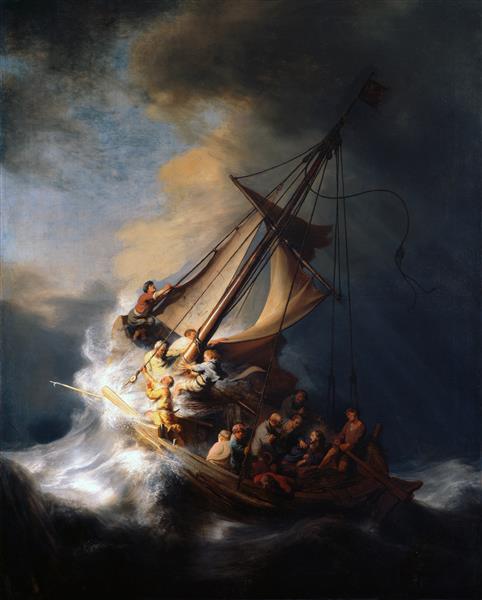
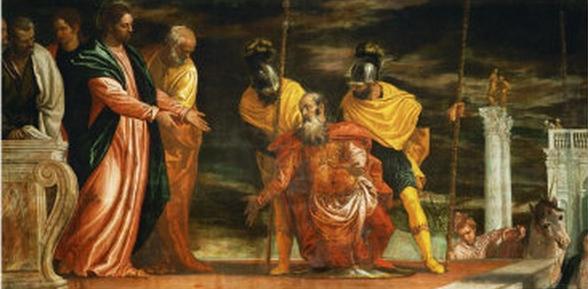
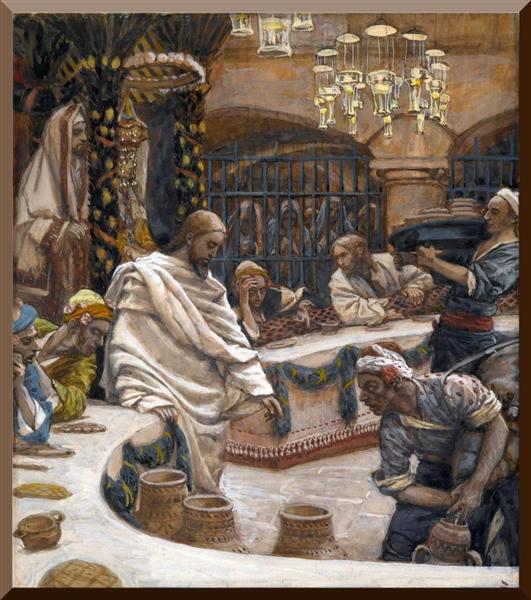
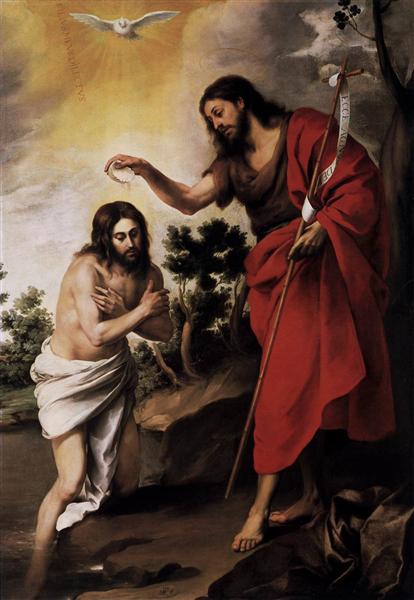
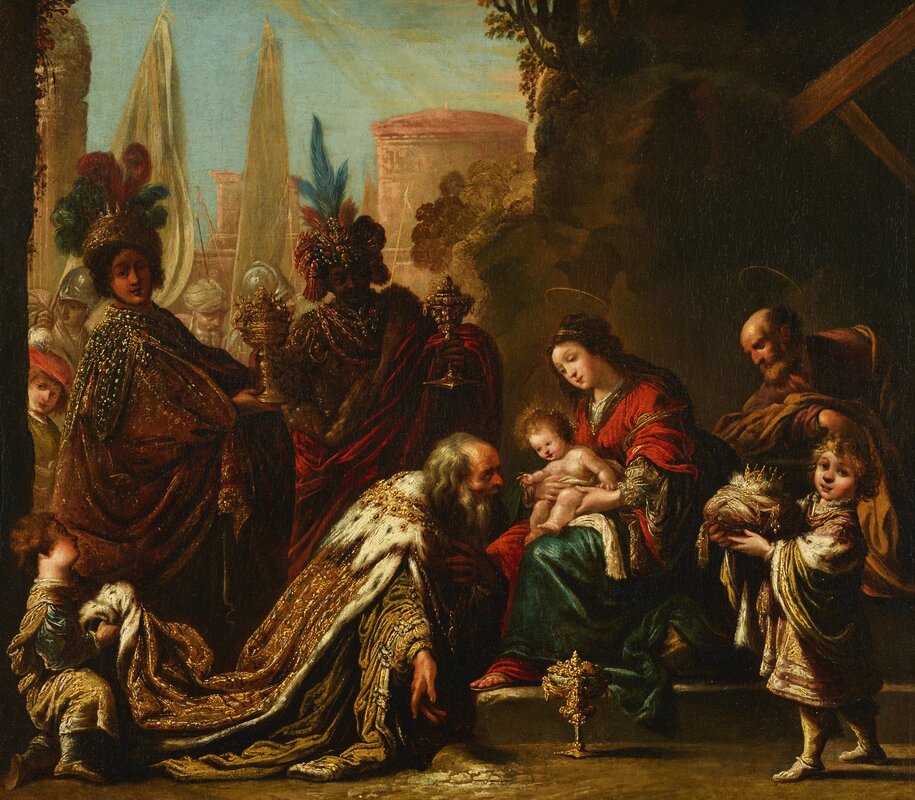
 RSS Feed
RSS Feed